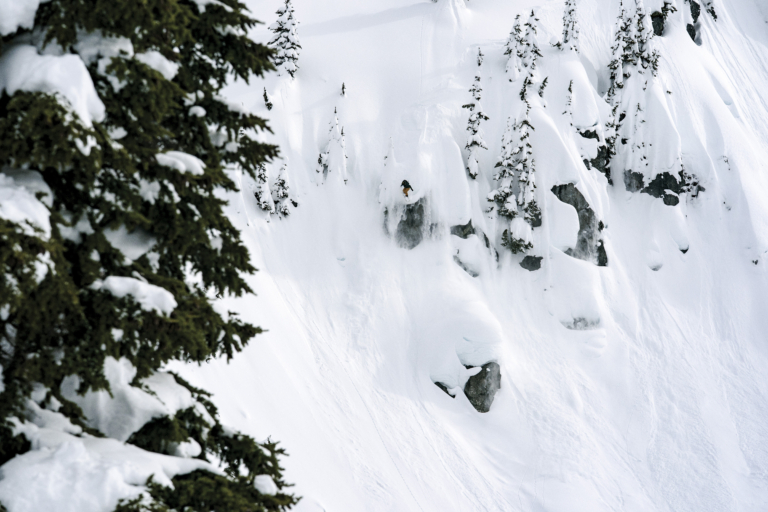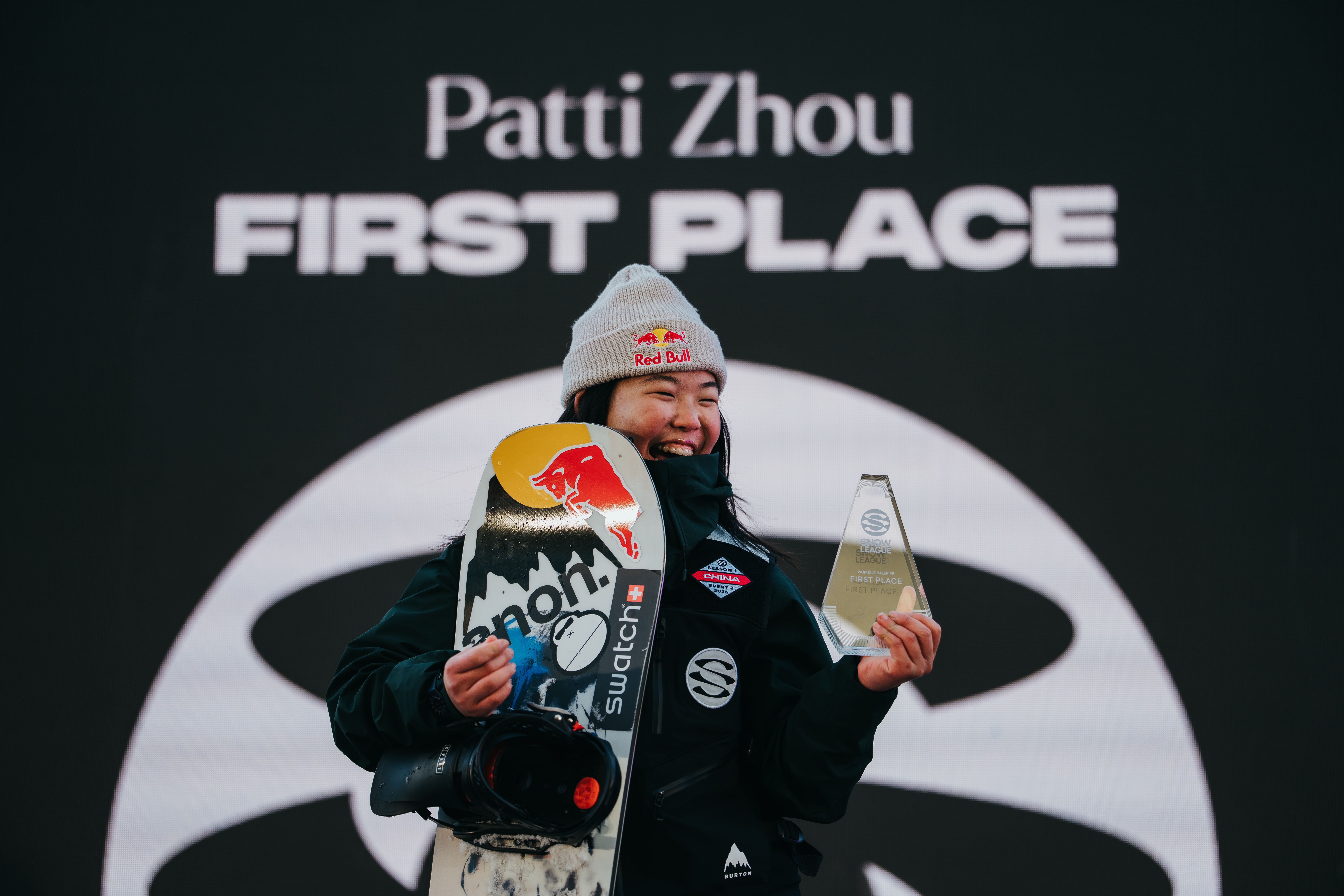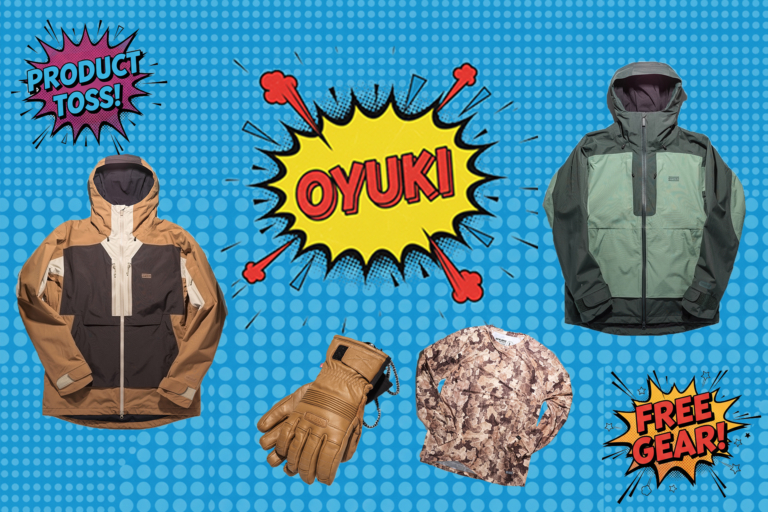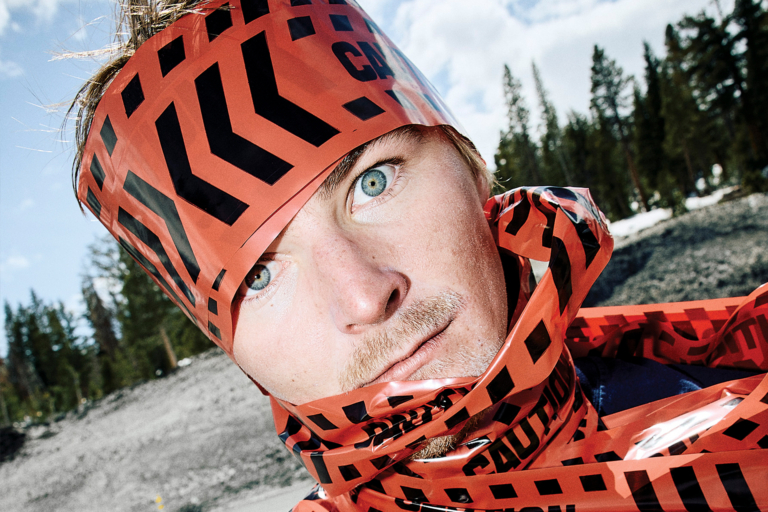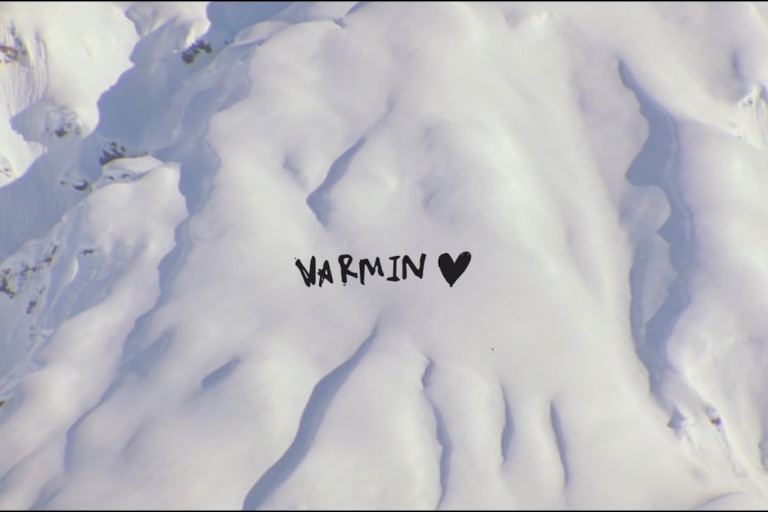After two years competing on the Freeride World Tour, Holden Samuels gives us the rundown on how it all came to be. From the latest print volume available now!

Mark Clavin: Where are you from originally?
Holden Samuels: I grew up in Big Sky, Montana. Born in North Carolina, moved to Nashville, then Montana, went to college in Colorado at Boulder. And after that, I moved here.
Where is “here”?
Salt Lake.
How did you get into snowboarding?
My whole family is all skiers. But I was in love with surfing when I was a kid—I thought it was the coolest thing ever. I skated and all that, and I tried snowboarding for the first time when I was 8, and it just felt so much better than skiing to me. I don’t know—I feel like I picked it up really quick and I was in within, like, two days. I did a bunch of park competitions when I was, like, 9 to 13.

And how did you get into freeriding?
My older brother, who is a skier, we did everything together. We all did USASA and went to nationals for a couple years. He joined the freeride team when I was, like, 13. So I thought that was pretty cool, and I followed him into that. And that’s pretty much how I got into freeride.
Do most mountains have teams? What did it entail?
Yeah. Most do. They tried to do, like, some drills—like, some turning drills and whatnot. But pretty much you got paired up with a coach and a group that was around your ability, and we would just go ride together. It wasn’t too structured, I would say. It was, like, a way for kids to have some adult supervision while they were out and be able to just go freeride. We usually did, like, an avy day a year. Not, like, a full course, but we would have beacon practice and stuff like that.

And that eventually led to contests?
Yeah, we all went to nationals a bunch of times as well. I was snowboarding; they would ski. And sometimes we’d compete on different days, but we’d all travel [to] the same comps. I grew up on the junior circuit and did pretty well. I won, like, the North American Championships twice, in 2016 at Whistler and 2017 in Kirkwood. And once you’re 18, you graduate into, like, the qualifiers.
And that leads to the Freeride World Tour?
It’s a little confusing. The North American qualifiers and juniors are a different organization than the Freeride World Tour, which controls the pro-level competition as well the qualifiers and juniors in Europe. But the way to get on the FWT is you do the qualifiers in North America, which are IFSA [International Freeskier & Snowboarder Association]. As soon as you qualify for the FWT, then the governing body becomes the world.…It took me a few years to jump into that because they only take two snowboarders from North America, two from Europe and two wildcards every year.

Once you qualify, is there a danger [of being] kicked off if another American wants to come in, like, next year?
Yeah, it’s, like, a constant cycle of people. Every year, they cut 50% of the field after half the season. So you start with 12 snowboarders. After three or four competitions, depending on the year, they’ll cut six of them, and whoever makes it to the finals gets invited back next year.
How was that pressure to qualify?
Pretty fun—lax at first. But I missed it by just a couple spots for a couple of years in a row. I really didn’t want to just kind of wait another season, because there’s not a lot of sponsorship opportunities on the qualifying tour because they weren’t televised.
How did the Never Summer sponsorship come about?
I just rode their boards when I was younger, growing up in Big Sky, and they were really good for riding around there because it’s super rocky [and] their boards are super durable. I was riding them in junior competitions for a long time, until someone in my community hooked me up with a rep. He was kind of stoked on what I was doing, and they started giving me boards. So yeah, since I got on the tour, they’ve been supporting me.

What’s the prize purse for winning a stop on FWT?
I think it’s, like, $4,600 before the cut, and then after the mid-season cut, since the field gets smaller, the money goes up and it’s, like, $5,600, maybe?
How do you like a one-run final format for certain stops?
It is super intimidating having never ridden something to just launch off of it full speed. But I think that adds such an interesting part [to] the competition. It’s not solely about your skill on snow. It’s a mental game—who is better at studying the mountain, knowing where they are, knowing what the conditions are gonna be like.

Why do you think there are less big names in FWT?
A lot of bigger names from skiing have come through there. I think a big part of it has to do with the way to qualify. At least in North America, you’re riding hardpack, steep runs, which isn’t the most fun on the snowboard. So I feel like that kind of turns people away. But I feel like I see better and better snowboarders, like, doing the qualifiers and on tour every year.
Thoughts on Natural Selection? Differences?
They are both awesome. When the Revelstoke competition happened, all the FWT riders stayed up in our hotel in Austria to watch it. If I was able to do both in my career, that would be huge. They get compared to each other a lot, but they are pretty different formats: One’s head-to-head, and one’s obviously best of one or two runs overall. NST is just a couple of events, while FWT is a whole season’s worth of stops. The terrain is totally different as well. FWT is geared toward higher-alpine riding. The big names and exclusivity of NST draws a lot of attention, but it also means it’s hard to get invited. I think it’s cool that anyone can qualify for the FWT through their qualifier system. Otherwise, there would be no backcountry-competition format where kids like me could make a name for themselves. And as far as weather windows, every year seems to be worse and worse for the conditions because of climate change.

And you guys don’t run snowmobiles on comp days? Is it always hiking?
It’s never snowmobiles. Sometimes we’ll run helis, depending on the venue and the time constraints. Like, if weather’s moving in and we gotta start really soon, they’ll heli us up to the top, but most of the time they try to have us hike.
Why is that?
It’s, like, another aspect of the competition. Freeride was born out of backcountry riding, where you hike up your line, and usually it takes a really long time.…You only get one run down, and you wanna make it look as good as you can. I feel like that is the reason: It adds another element to competing. You have to be in good enough shape to hike up. [Laughs.]
Is there anyone that you, like, kind of try to emulate their riding or inspires you, and you’d like to kind of model your career after that?
Travis Rice. I feel like for every kid [that’s] into freeriding and that’s, like, “If I could make my riding look like his,” yeah. Xavier De Le Rue as well, who won the [Freeride] World Tour a few times. His riding—just, like, that kind of high-alpine style of riding really fast, hitting cliffs, and the lines he gets himself into—like, that’s definitely someone I look up to.
What’s the toughest course?
Definitely the Bec des Rosses in Verbier, Switzerland. Super steep at the top and then every line pretty much has exposure below. Most of the mountain is a no-fall zone. A good amount is 50 degrees [of slope angle]. In the very middle, the top might be about 60 degrees, and then it kind of, as you go down, climbs out to maybe, like, 50. Yeah, that’s crazy.

If you could make some improvements to Freeride World Tour, what would it be?
I’d love to have a competition in the U.S. It’s so much bigger in Europe, but it would be cool if they could get more people involved in a more populated area in the U.S., if they had one in Salt Lake, Tahoe or Colorado. In Verbier, they’re selling contest bibs, and everyone knows who they are. There are posters and billboards. The Freeride World Tour is a huge brand, and it’s got a ton of brand recognition, and people watch it all over.
Good luck on it this season! We will definitely be checking in.

